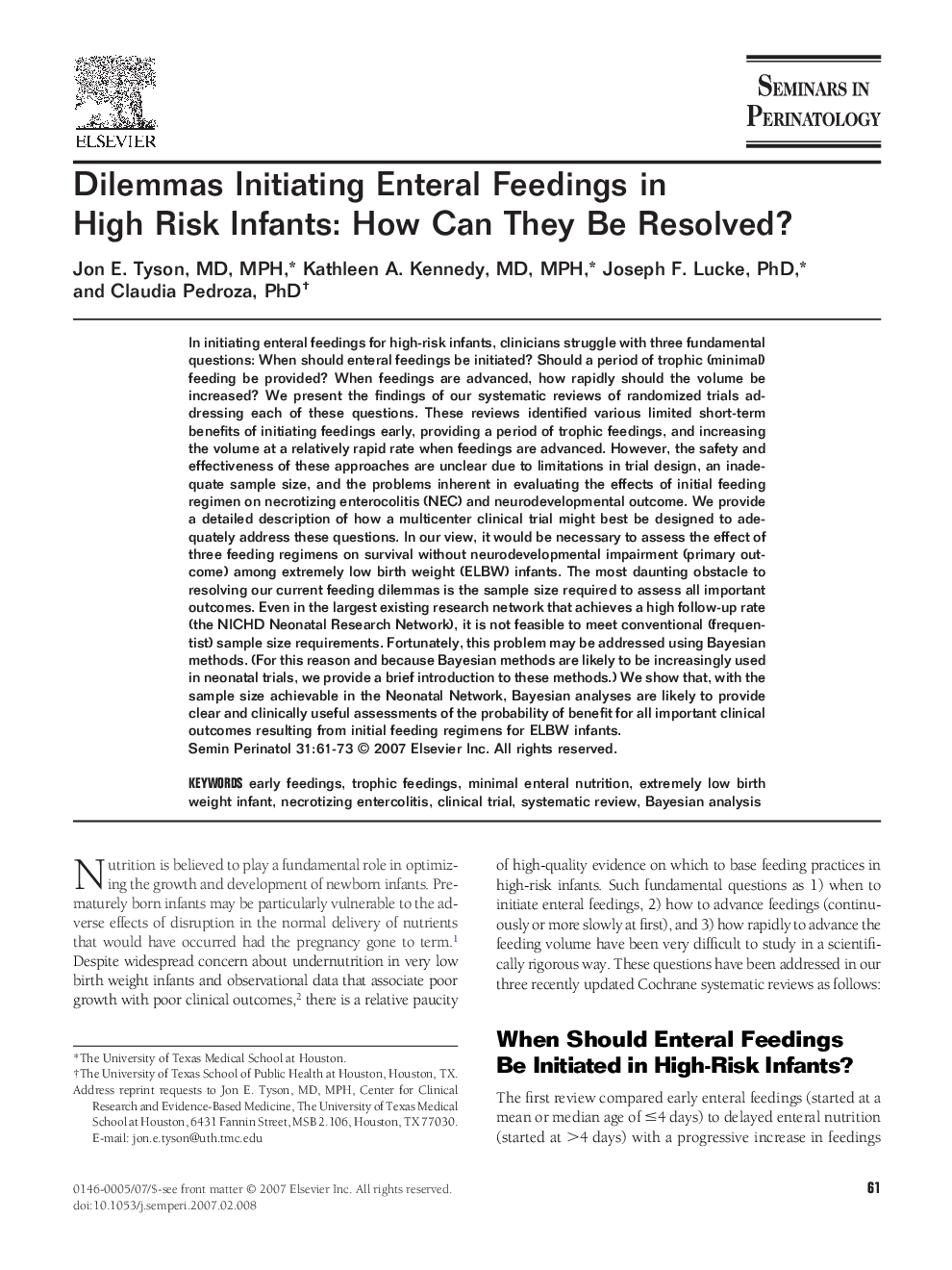| Article ID | Journal | Published Year | Pages | File Type |
|---|---|---|---|---|
| 3837118 | Seminars in Perinatology | 2007 | 13 Pages |
In initiating enteral feedings for high-risk infants, clinicians struggle with three fundamental questions: When should enteral feedings be initiated? Should a period of trophic (minimal) feeding be provided? When feedings are advanced, how rapidly should the volume be increased? We present the findings of our systematic reviews of randomized trials addressing each of these questions. These reviews identified various limited short-term benefits of initiating feedings early, providing a period of trophic feedings, and increasing the volume at a relatively rapid rate when feedings are advanced. However, the safety and effectiveness of these approaches are unclear due to limitations in trial design, an inadequate sample size, and the problems inherent in evaluating the effects of initial feeding regimen on necrotizing enterocolitis (NEC) and neurodevelopmental outcome. We provide a detailed description of how a multicenter clinical trial might best be designed to adequately address these questions. In our view, it would be necessary to assess the effect of three feeding regimens on survival without neurodevelopmental impairment (primary outcome) among extremely low birth weight (ELBW) infants. The most daunting obstacle to resolving our current feeding dilemmas is the sample size required to assess all important outcomes. Even in the largest existing research network that achieves a high follow-up rate (the NICHD Neonatal Research Network), it is not feasible to meet conventional (frequentist) sample size requirements. Fortunately, this problem may be addressed using Bayesian methods. (For this reason and because Bayesian methods are likely to be increasingly used in neonatal trials, we provide a brief introduction to these methods.) We show that, with the sample size achievable in the Neonatal Network, Bayesian analyses are likely to provide clear and clinically useful assessments of the probability of benefit for all important clinical outcomes resulting from initial feeding regimens for ELBW infants.
